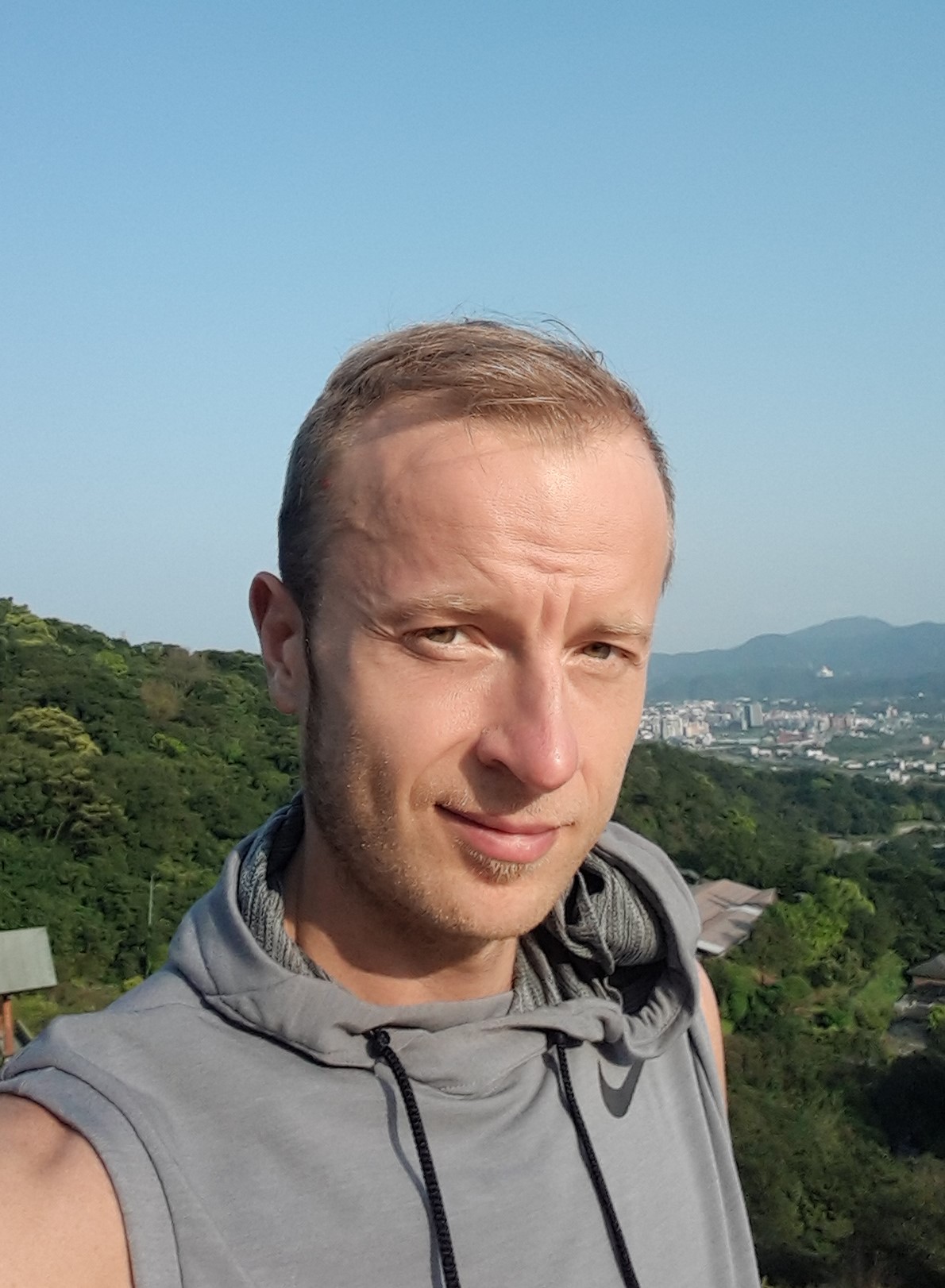I Believe Chinese Buddhism Has Great Potential!

Amituofo! I was kindly invited to write a short article for DILA Newsletter, so I would like to use this opportunity to introduce myself a little bit to the readers. My name is Grzegorz Polak and I am staying at DILA as a visiting scholar. First of all, I want to say that I am very grateful for the opportunity to be at DILA: it is a great honor and a privilege for me! Here I would like to thank those who have made my coming here possible – particularly Bhikkhunī Dhammadinnā and Prof. Weijen Teng for their help and their patience with me. Even before coming here, I had heard many good things about the hospitality of Taiwanese people, but it has even surpassed my expectations! I am very impressed by the spirit of friendliness of the people living here. I would therefore like to express my gratitude and thank the students and staff at DILA (as well as several other Taiwanese people) who have been helping me, an unexperienced foreigner, in various ways: introducing me to various aspects of life in Taiwan (including eating with chopsticks 😉), helping me with learning
Chinese language, and deal with everyday practical issues. The warmth emanating from the people at DILA more than makes up for the almost constantly rainy and overcast weather!
Buddhism Is Not Only My Research, Also My Life's Pursuit
I come from Poland, a medium sized country in Central-Eastern Europe, with a climate that is much colder than that of Taiwan. I work at the UMCS University (居禮夫人大學) in Lublin, where I teach courses connected with Religious Studies, Philosophy, and Buddhism in particular. In my research I focus on the fascinating issue of Early Buddhism, and in particular on the subject of early Buddhist jhāna meditation. I have written a book (based on my PhD thesis) and several papers on this subject and have taken part in many conferences devoted to it. I would like to say that for me this is not simply an academic, theoretical subject – it is my life’s pursuit with great existential and practical significance for me. I want to find out the truth about the Buddha’s teaching to be able to implement it in my life! Early Buddhist research is now a very ‘hot’ academic topic, and many Buddhists themselves (including monastics) are researching it. It also has great practical implications, as its results are being implemented in everyday practice. While it is mostly Theravada Buddhists that are engaged in Early Buddhist studies, I would really like to invite and encourage Chan practitioners and sympathizers to become interested in it as well. As a result of my research, I have discovered some fascinating and important similarities between Early Buddhist and Chan teachings, particularly concerning early Buddhist jhāna and silent-illumination (默 照) meditation, as taught by Master ShengYen. The belief that the Chan tradition goes back to the Buddha himself, and his direct, non-verbal transmission on to Mahākāśyapa is a foundational story of the Chan Buddhists. I believe that comparative study of Early Buddhism and Chan may provide the key to understanding some enigmatic and difficult aspects of the Buddha’s teaching. In my research I also rely on interdisciplinary approach, using the help of modern science and philosophy, trying to reach a deeper understanding of the Buddhist doctrine. In this way it is also possible to give it a wider outreach and make it more accessible in the modern world, which is looking for a solution for its problems and I hope to be able to present some of the findings of my research during my series of lectures at DILA in May.
The West is Now in a State of Deep Crisis; And Chinese Buddhism Has Great Potential Shoulders Responsibility
I also feel that the West is now in a state of deep crisis, and strongly believe that Chinese Buddhism has great potential but also shoulders great responsibility for the future of our world. I hope that the results of Early Buddhist research can help Buddhism reinvent itself, reform itself, better understand itself in order to face the challenges of modernity. In this way I personally want to contribute as much as I can towards the reaching of these goals. That is why I have decided to come here and devote much of my recent life to learning Chinese. While according to the official plan, I am supposed to stay at DILA until the end of September, I can already say that my stay here has been so fruitful and my impression so positive that I will do what I can to stay longer and continue my research, whether in Taiwan or Mainland China. Although it is very difficult to organize on the official level, I hope I will be able to realize my goal!
By Grzegorz Polak
Texts provided by : DILA Newsletter No.11, 04/2017
For more sharing, please visit
DILA newsletter